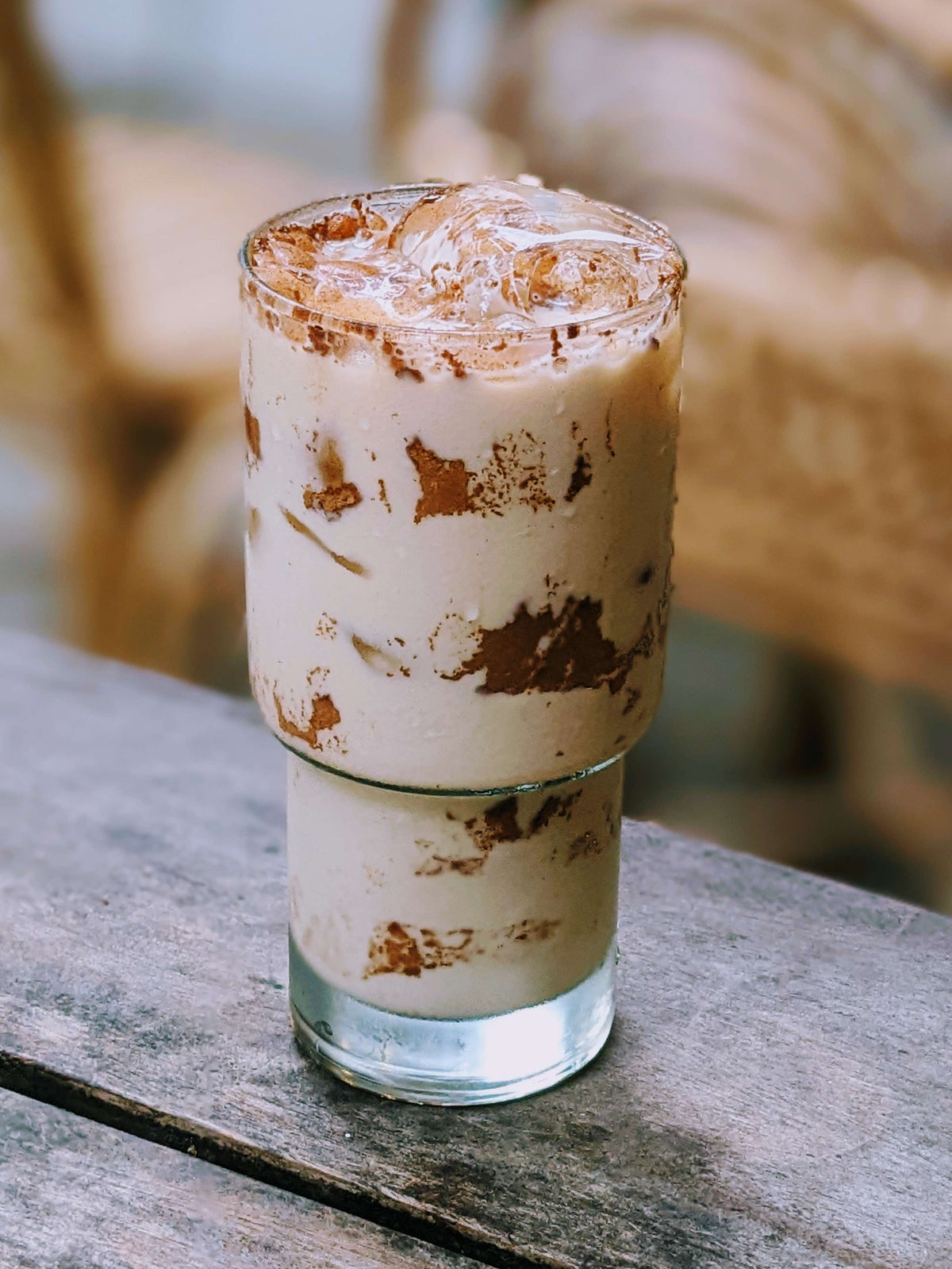
The Real Dirt on Horchata
|
|
It’s been 3 years since the Covid-19 pandemic took over the world, and for better or worse, many of our economic beliefs were irrevocably altered. El Union was closed from March to May 2020, and in the depths of my existential crisis I decided to share a screenshot of our horchata recipe. I shared it as a labor day gift to all workers, but also as a dare to my fellow business owners.
Coffee and horchata go together like religion and empire.
We didn’t invent horchata, by the way. Most people will call it a Mexican rice drink, others will say the Spanish version made of chufa nuts was first, originating from the Moors of North Africa. In short, it got popular through colonization. Which is probably what makes it seem so Filipino. Rice and spices combine to make a refreshing drink that cuts across socio-economic divides. Back in 2015, our team in El Union decided to develop a recipe for horchata as a sweet glow up for dairy milk. Paired with a double shot of espresso, we called it the dirty horchata. It was an instant hit. Coffee and horchata go together like religion and empire.
In 2017, we got invited to Madrid Fusion, a prestigious food and beverage expo that doubled as a bougie celebration of our colonial mentality. We were thrilled to be included. The theme was rice, and the challenge was to serve horchata to more than 400 people. That’s when we transitioned to kegged horchata. Our recipe evolved to yield 14 liters per batch––which is what I shared on social media on May 1, 2020. It was borne out of desperation––I’d been wracking my brain about how to keep paying our staff without any sales for the foreseeable future. Why did any of us deserve to get paid for staying home, but also: why was our survival dependent on labor? I didn’t have answers to any of these questions, but I was sure of this: secret recipes were useless without people to make them. So I gave the horchata recipe away, to give people one small means of production. For the rest of 2020 our team adopted a universal basic income, an experiment in fleshing out the slogan, “from each according to his ability, to each according to his needs."
In the years since, I’ve seen horchata served in most coffee shops in the Philippines. Our signature drink is now a menu staple in F&B. Back in La Union, it’s still our number 1 best seller. Our little experiment in the midst of a global pandemic was an economic success. We have a crew of four kegging it weekly, and on a good day we can sell 500 servings. Sharing the recipe did not hurt our sales at all. And it didn’t hurt our reputation either.
It’s common to believe that unique ideas are the essence of a great business. People will come up with a new app, or trademark a product in the hopes that one great idea will generate passive income forever. That’s the myth of colonialism: getting first dibs on a resource or a recipe doesn’t mean you get to extract profit indefinitely. Just like Magellan never discovered the Philippines, horchata was never one person’s creation. It is a product of the labor that human beings continue to put in, week after week.
Horchata represents our decolonizing practice, a labor movement brewing from within the framework of capitalism.
In 2022, we shifted our focus from surviving to thriving. As Covid restrictions eased up, our sales started rising. Even then, we held on to many of the lessons the pandemic taught us: 30-hour work weeks, staff meals for everyone. We upped our starting salary to PHP 12,000.00/month or Php 100/hr to approximate Php 750/day minimum wage, for the most modest of tasks. We focused on efficiency rather than raising prices. In ways we’ve yet to disclose, we refused to profit from cheap and tedious labor. In the eyes of our customers, we’ve taken commodities like rice, coffee, and spices to make a rich and refreshing drink. But for our crew, horchata represents our decolonizing practice, a labor movement brewing from within the framework of capitalism. To order our signature drink is to participate in the discourse. We have the power to choose what economic models will shape our future. Sometimes it means demanding better policies from the government, other times it means sharing trade secrets and letting people straddle the line between consumer and producer. When you line up at El Union, it means ordering a dirty horchata. But always, it means valuing labor over capital.




